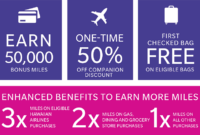Senior travel trips offer a unique opportunity for exploration and rejuvenation. Whether you dream of relaxing on a tropical beach, immersing yourself in a vibrant culture, or embarking on an adventurous trek, carefully planned travel can cater to diverse interests and physical abilities. This guide explores various trip types, logistical considerations, health and safety protocols, popular destinations, budgeting strategies, accessible options, and the role of technology in enhancing the senior travel experience. We’ll delve into making your golden years even more golden through enriching travel adventures.
From choosing the perfect destination to managing travel logistics and prioritizing health and safety, we provide comprehensive advice to help you plan a memorable and worry-free trip. We will also explore the social benefits of travel, and how technology can enhance your experience, ensuring your journey is both enjoyable and enriching. Discover how to create a travel plan tailored to your specific needs and budget, allowing you to fully embrace the joys of exploring the world.
Planning & Logistics for Senior Travelers
Planning a trip for senior travelers requires careful consideration of their specific needs and preferences to ensure a safe, comfortable, and enjoyable experience. This involves meticulous attention to detail in every stage, from initial planning to the return home. Prioritizing accessibility and ease of travel is paramount.
Flight Bookings for Senior Travelers
Booking flights for senior travelers necessitates prioritizing comfort and minimizing potential stress. Consider direct flights to reduce the number of transfers and potential delays. Choose airlines known for their excellent customer service and in-flight amenities tailored to older passengers, such as wider seats or assistance with boarding. Booking aisle seats provides easier access to restrooms and reduces the need to disturb fellow passengers. When booking, explicitly mention any mobility needs or special assistance required to ensure the airline can make the necessary arrangements. For example, a traveler needing a wheelchair can pre-arrange this service to avoid last-minute stress.
Accommodation Choices for Seniors
Choosing suitable accommodation is crucial for a pleasant trip. Look for hotels or accommodations with features that cater to seniors’ needs, such as elevators, accessible rooms with roll-in showers or grab bars, and readily available assistance. Consider proximity to essential amenities like restaurants and medical facilities. Reading reviews that mention accessibility features is highly recommended. For instance, a hotel boasting a “senior-friendly” designation might offer larger rooms with easy-to-navigate layouts.
Transportation Options for Senior Travelers
Transportation during the trip should be comfortable and convenient. Pre-booked airport transfers can minimize stress associated with navigating public transport with luggage. Consider renting a car only if the driver is comfortable and confident driving in the destination’s environment; otherwise, explore local transportation options like taxis or ride-sharing services with accessible vehicles. Public transportation options should be carefully researched for accessibility features, such as ramps, elevators, and designated seating areas. For example, researching bus routes with low steps or readily available wheelchair ramps is crucial for wheelchair users.
Organizing Travel Documents and Medical Information
A well-organized travel document system is essential for smooth travel. Create a comprehensive file containing copies of passports, visas, flight tickets, hotel confirmations, travel insurance details, and emergency contact information. Keep both physical and digital copies, storing the digital copies in a secure cloud storage service. A separate, readily accessible document should contain essential medical information, including a list of medications, allergies, pre-existing conditions, emergency contact details for physicians, and any relevant medical records. This document should be carried separately from the main travel documents and also provided to a trusted family member or friend. Consider carrying a small medical wallet containing necessary prescriptions and relevant doctor’s notes.
Budgeting and Financing Senior Travel
Planning a senior travel trip requires careful consideration of finances. A well-structured budget ensures a relaxing and enjoyable experience without the stress of unexpected costs. This section outlines various methods for budgeting and financing your senior adventure, helping you maximize value and minimize expenses.
Methods for Budgeting and Financing Senior Travel
Effective budgeting begins with a realistic assessment of your travel goals and financial resources. Several methods can help you finance your trip. These include saving specifically for travel, utilizing travel rewards programs, and exploring financing options.
Utilizing Travel Packages and Discounts
Travel packages often offer significant cost savings by bundling flights, accommodation, and sometimes even activities or tours. Look for packages tailored to senior travelers, as many tour operators offer age-related discounts. These packages frequently include convenient features, such as airport transfers and pre-arranged excursions, streamlining your trip planning. For example, a package deal to a European city might include round-trip airfare, a week’s stay in a centrally located hotel, and a guided walking tour, all at a discounted price compared to booking each element individually. Additionally, many airlines and hotels offer senior discounts; however, the eligibility criteria and discount percentages vary widely. Always check directly with the provider.
Strategies for Finding Affordable Travel Options
Finding affordable travel involves strategic planning and resourcefulness. Consider traveling during the shoulder seasons (spring and fall) when prices are generally lower than peak summer months. Flexibility in your travel dates can also lead to significant savings. Booking flights and accommodations well in advance often secures better rates. Websites and apps that compare prices across various airlines and hotels are invaluable tools. Utilizing budget airlines and considering alternative accommodation options, such as hostels or guesthouses, can also significantly reduce costs. For example, flying mid-week instead of on weekends can often result in lower airfare.
Creating a Detailed Travel Budget
A detailed travel budget is essential for managing expenses effectively. Begin by listing all anticipated expenses, categorizing them for clarity. This should include flights, accommodation, transportation (local and airport transfers), meals, activities, entertainment, visa fees (if applicable), travel insurance, and personal spending money. Allocate a realistic budget for each category based on your research and preferred travel style. Tracking your spending throughout the trip will help you stay within budget and avoid overspending. For instance, if your budget allows $100 per day for food, meticulously track your daily expenses to ensure you stay within this limit. Consider using a spreadsheet or budgeting app to track your expenses and monitor your progress. Unexpected costs should also be accounted for by including a contingency fund, for example, 10-15% of your total budget.
Technology and Senior Travel
Technology has revolutionized travel, and for senior travelers, its benefits are particularly significant. From simplifying planning and navigation to enhancing communication and safety, technology can significantly improve the overall travel experience, making it more accessible and enjoyable. This section will explore how various technological tools can be utilized to enhance senior travel.
Smartphones and tablets, combined with readily available apps, offer a wealth of tools designed to streamline the travel process and boost safety and security for seniors. These devices can address common concerns associated with aging and travel, such as memory lapses, navigation difficulties, and maintaining contact with loved ones.
Travel Apps and GPS Navigation
Many apps are specifically designed to assist travelers, particularly seniors. Navigation apps, such as Google Maps or Waze, offer voice-guided directions, eliminating the need to constantly check a map. These apps often include features like real-time traffic updates, helping seniors avoid delays and potential stressful situations. Other travel apps can assist with booking flights, hotels, and tours, managing itineraries, and accessing local information, all from the convenience of a smartphone or tablet. For example, an app like TripAdvisor can provide reviews and ratings of restaurants and attractions, helping seniors make informed decisions. The visual nature of many travel apps can also be easier to navigate than traditional websites, making them more user-friendly for seniors.
Staying Connected with Family and Friends
Maintaining contact with loved ones while traveling is crucial for peace of mind, particularly for seniors. Technology offers various ways to stay connected. Video calling apps, like FaceTime or Skype, allow for face-to-face conversations, making it feel as though family and friends are traveling along. Messaging apps, such as WhatsApp or Facebook Messenger, enable quick and easy communication, allowing seniors to share updates and photos throughout their journey. GPS tracking features on some smartphones can also provide reassurance to family members, allowing them to see the traveler’s location and ensure their safety. Consider using a device with a large, easily readable screen and simple interface for enhanced usability.
Benefits and Drawbacks of Travel Technology Tools for Seniors
Using technology for travel offers numerous advantages. It simplifies planning, enhances safety through navigation and location sharing, and facilitates communication with family and friends. However, there are potential drawbacks. Some seniors may find the technology itself challenging to learn and use, requiring patience and assistance. Concerns about data privacy and security are also relevant. The reliance on technology also means that a lack of internet access or technical malfunctions can disrupt travel plans. Therefore, it’s essential to choose user-friendly technology and have backup plans in place, such as printed maps or alternative communication methods. Furthermore, consider purchasing a device with good battery life and investing in a portable charger to minimize disruptions.
Concluding Remarks
Ultimately, senior travel trips represent a chance to create lasting memories and enrich your life. By carefully considering the aspects outlined in this guide – from planning and logistics to health, safety, and budget – you can confidently embark on an unforgettable journey. Remember that the right planning can transform a simple trip into an extraordinary experience, tailored perfectly to your unique needs and desires. Embrace the adventure and create memories to cherish for years to come.




